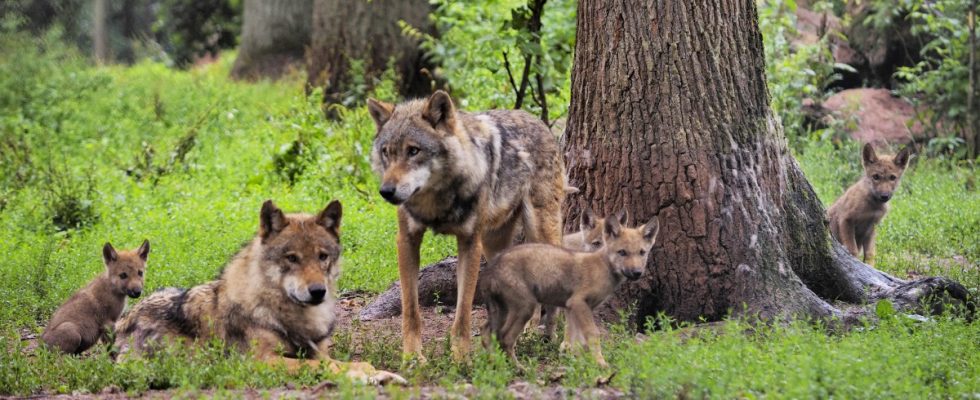The return of wolves, bears and lynxes to Bavaria is welcomed by the population, as has been shown time and again for years – despite all the conflicts with the predators. The question of whether politicians are doing enough to ensure that people and the strictly protected wolves and bears in this country can live together in peace is a completely different matter. 63.2 percent or almost two-thirds of Bavarians answered no or rather no. In this respect, the Free State even brings up the rear among the federal states. This is the result of a representative survey by the opinion research institute Civey on behalf of the environmental organization WWF.
For the WWF wildlife expert Moritz Klose it is clear that Söder’s announcement from spring that wolves and bears should be shot faster if they cause problems “does not satisfy the people in the Free State at all”. Because at the same time, in the same survey, only a third (33.8 percent) of those questioned rejected the return of wolves to the Free State. The bears were only slightly more humans at 37 percent. In the country ranking, Bavaria is thus in the middle. And this despite the fact that the Free State is the only federal state that, if only very rarely, has to do with roaming young bears from Trentino, but still from time to time. Most recently this spring.
“The great dissatisfaction shows that the political sham debates and the wolf populism about upper limits, secret shooting permits or no-go areas hide the real problems,” says Klose. “These debates are not only at the expense of wolves but also at the expense of shepherds and other grazers.” From the point of view of the WWF, Bavaria and all of Germany “finally need nationwide wolf-repellent livestock protection”.
So far, the Free State has only assumed the investment costs for the construction of wolf-repellent fences or the acquisition costs for livestock guard dogs in so-called wolf regions. Outside they have to pay the farmers themselves. Many shy away from that. Wolves are very mobile, they easily cover distances of 80 kilometers and more in one night. Other nature conservation associations are also demanding that the state government refrain from designating wolf regions and promote fences and other protective measures throughout Bavaria. In the debate about the return of the bears, the WWF is also demanding more objectivity and information from the population.
Compared to wolves and bears, the lynx has always been a popular figure. Only a few specimens of the big cats live in the wild in Bavaria: in the Bavarian Forest, in the Steinwald in the Upper Palatinate and in the Fichtelgebirge. Exactly 75 percent of the Bavarians surveyed find it positive or rather positive that the big cats are spreading again in this country – even if the animals are very hesitant to settle again. And of the remaining quarter of those surveyed, only half (12.2 percent) have something against the fact that lynx are increasingly roaming through the local forests.
The WWF, like the Bund Naturschutz and other organizations, is therefore demanding that the Free State decide to release young lynx in a targeted manner. Such reintroductions have so far only occurred in the Steinwald and in the Fichtelgebirge. They included only a few animals and have therefore not really been able to contribute to a re-spreading of the cats of prey with the conspicuous brush ears. As individual projects, however, they are quite successful and show how the small population could be strengthened.

